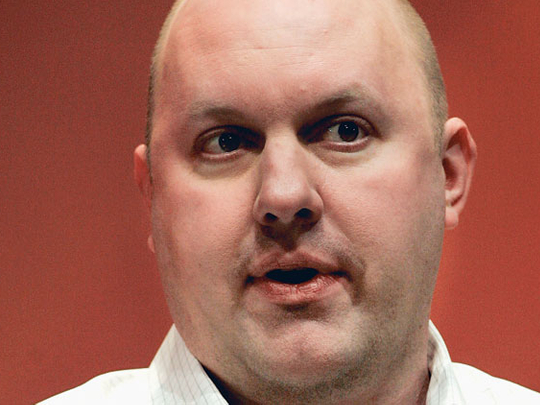
New York: Ning Inc, the social-networking site co-founded by venture capitalist Marc Andreessen, did what many young web companies only dream of: It got customers weaned on free services to start paying.
Since telling users in April it would stop offering the means to build and operate social networks for free, Ning's paid user base tripled to 45,000, with memberships starting at $2.95 (Dh10.83) a month. The closely held company is adding paying subscribers at 5,000 a month, three times the rate it had before.
"A very large percentage of economic activity is shifting online and it makes sense that there are more services that are going to charge," said Andreessen, the co-founder of Netscape Communications Corp, who serves as Palo Alto, California-based Ning's chairman. "It also means there are going to be more people willing to pay."
Fee-based services
Ning is part of a minority of social-media sites that are charging users, following a path cut by media and entertainment providers, which have experimented with fee-based services. Founded in 2004, the same year as Facebook Inc, Ning failed to turn a profit from its original strategy: offering most services for free and charging a monthly fee for extra features. Co-founder and Chief Executive Officer Gina Bianchini resigned in March, and 42 per cent of the staff was fired in April.
Social-networking tools on the web are widely available to the public for free. Facebook, which has more than 500 million users, is expected to generate at least $1.4 billion this year, mostly from the sale of ads, two people familiar with the matter said last month. Twitter, with more than 100 million users, began running ads on its site this year.
With a large population of web users relying on Facebook for basic social services, like keeping track of close friends, there's an opportunity for other sites to charge for more unique services, said Lou Kerner, a social-media analyst at Wedbush Securities Inc in New York.
"Facebook has won the free social media race," said Kerner. "What you're seeing in the marketplace is folks who are trying to find out business models that are more niche-oriented."
For Jive Software Inc, that niche is business. The startup, sells social-networking and online collaboration tools to corporations, including Nike Inc, Intel Corp. and Charles Schwab Corp. Jive's services start at $100 per user per year, and many customers pay for at least 10,000 users upfront.
Business users
"The use of social software in the consumer world has no doubt fuelled the interest level" among business users, said Tony Zingale, Jive's CEO. The company, which received a $30 million investment last month led by Kleiner, Perkins, Caufield & Byers, expects bookings of as much as $25 million, he said.
Paying subscribers are an attractive asset to venture capitalists, who are often asked for money from Internet startups planning to cash in on advertising.
"Ad-driven is a lazy model," said Dave McClure, a startup adviser and venture capitalist in Silicon Valley. "If there is value then there probably is a paid relationship that works there at some point," he said.










